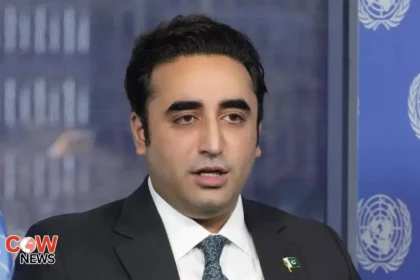Prime Minister Shehbaz Sharif has confirmed that the recent ceasefire between Pakistan and India was the result of U.S. intervention, emphasizing that Pakistan agreed to halt hostilities for the sake of regional peace.
Speaking at a reception hosted by the U.S. Embassy in Islamabad to mark America’s 249th Independence Day, Prime Minister Sharif extended his congratulations to the American people and lauded the growing strength of bilateral ties between Pakistan and the United States.
“The ceasefire with India was achieved through American mediation,” Sharif stated. “We accepted the ceasefire not out of weakness but in the interest of peace and stability in the region.”
Sharif’s remarks came amid renewed diplomatic engagement between Islamabad and Washington. The prime minister praised the evolving relationship between the two nations, describing it as entering a “new era” of cooperation. “Pakistan-U.S. relations have a long history. The United States was one of the first countries to recognize Pakistan,” he noted.
Referring to the broader geopolitical context, the Prime Minister underscored Pakistan’s sacrifices in the global war on terror. “We have suffered enormous losses in the fight against terrorism. Our sacrifices are unmatched,” he said. He recalled Pakistan’s frontline role in the 1980s Afghan war and its deep involvement in the post-9/11 counterterrorism efforts.
Sharif reiterated that Pakistan has always pursued peace but remains capable of defending itself. He cited the recent incident in Pahalgam, which he described as a “false flag operation” orchestrated by India. “India failed to provide any credible evidence. We offered an independent investigation, but instead, India launched an unprovoked attack,” Sharif said. “We responded forcefully in self-defense.”
He stressed that the international community, particularly the United States, played a crucial role in de-escalating tensions. “The U.S. intervention helped avoid further conflict. We respected that for the sake of peace in South Asia.”
Sharif’s comments come at a time when Islamabad is seeking to deepen economic and security cooperation with Washington. The U.S. has increasingly acknowledged Pakistan’s role in maintaining regional stability, especially in the aftermath of recent tensions with India and the ongoing challenges in Afghanistan.
The Prime Minister also reiterated Pakistan’s commitment to improving ties with its neighbors and contributing to regional development. “We are ready to work with all regional partners to ensure lasting peace, mutual respect, and prosperity,” he said.
Diplomatic observers noted that the Prime Minister’s acknowledgment of U.S. mediation marks a significant moment in trilateral relations involving Pakistan, India, and the United States. It also signals Pakistan’s intent to position itself as a responsible regional actor amid shifting alliances and global uncertainties.
As the U.S. celebrated its Independence Day, the message from Islamabad was clear: Pakistan values its partnership with Washington and is willing to make tough decisions—like accepting a ceasefire with India—for the greater goal of peace.







